Moving event brings McMaster community together to mark Dec. 6
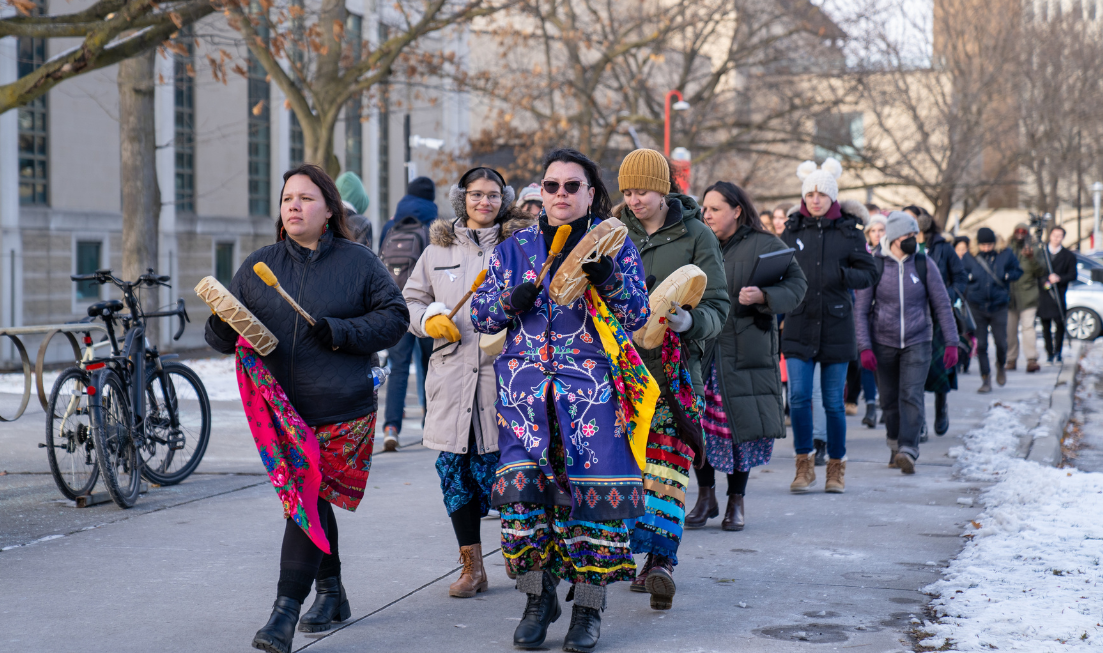
‘Remember. Reflect. Resist.’ Events held for the National Day of Remembrance and Action on Violence Against Women were both a memorial and a call to action. All photos by Georgia Kirkos, McMaster University
“We must talk about violence every day. It’s difficult for us to digest the truth, but if we don’t digest the truth we won’t come up with the solutions to the problem.” — Medora Uppal, CEO, YWCA Hamilton
Thirty-five years ago, on Dec. 6, 1989, 14 women were killed in an act of gender-based violence at what was then called École Polytechnique in Montreal.
Since 1991, the day has been known as National Day of Remembrance and Action on Violence Against Women, an occasion to honour victims and survivors of gender-based violence and to recognize its disproportionate impact on Indigenous women, girls and 2SLGBTQI+ people; and a rallying point to inspire change.
At McMaster, 150 people attended a commemorative event, in-person and online, which was followed by a memorial walk across campus.
Here’s a look at the day and the events.
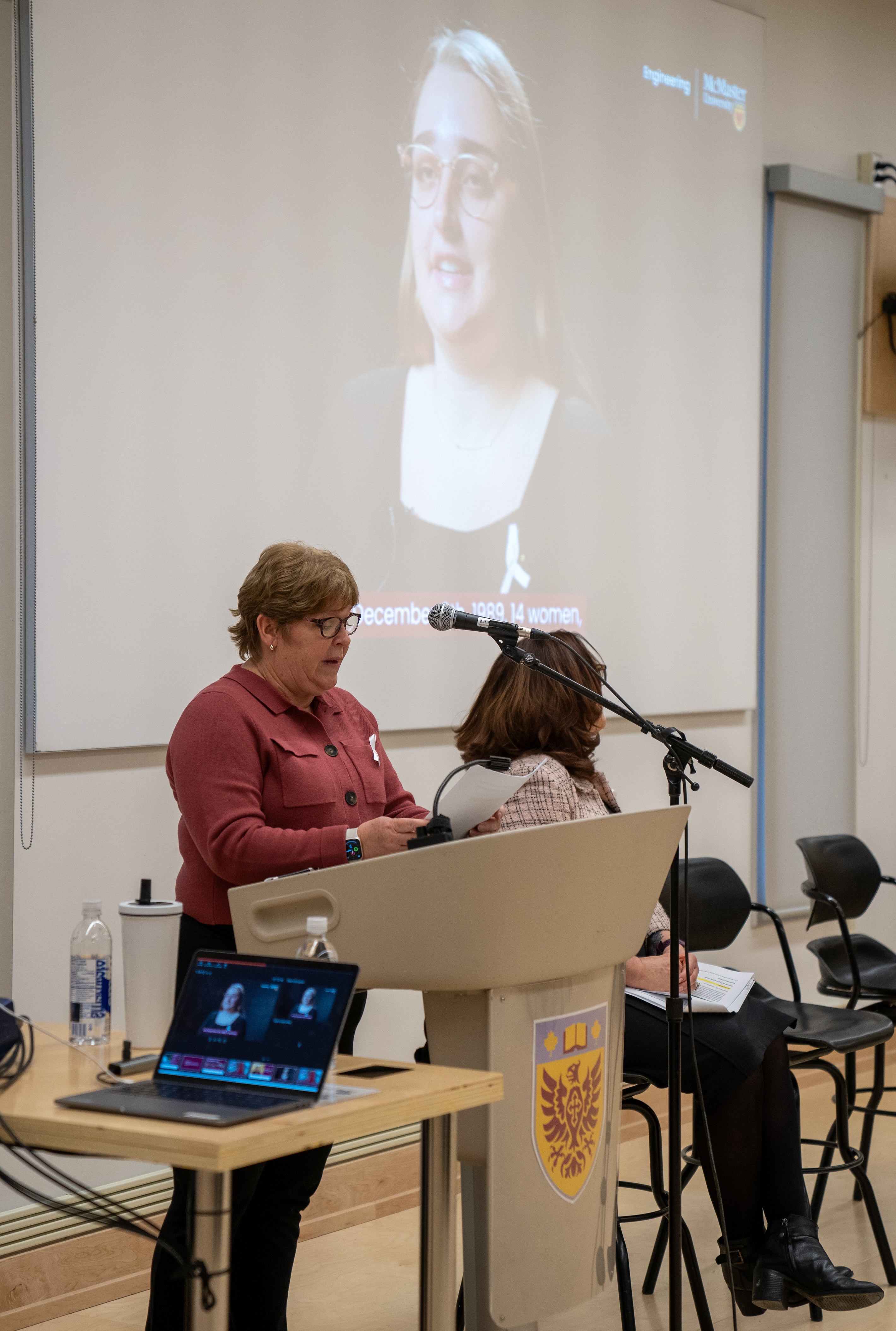
“The progress we’ve made and continue to make fills me with hope, and I look forward to a world where all young minds are free to explore their full potential. But I know that complacency cannot be our path forward.” —Heather Sheardown, Dean, Faculty of Engineering
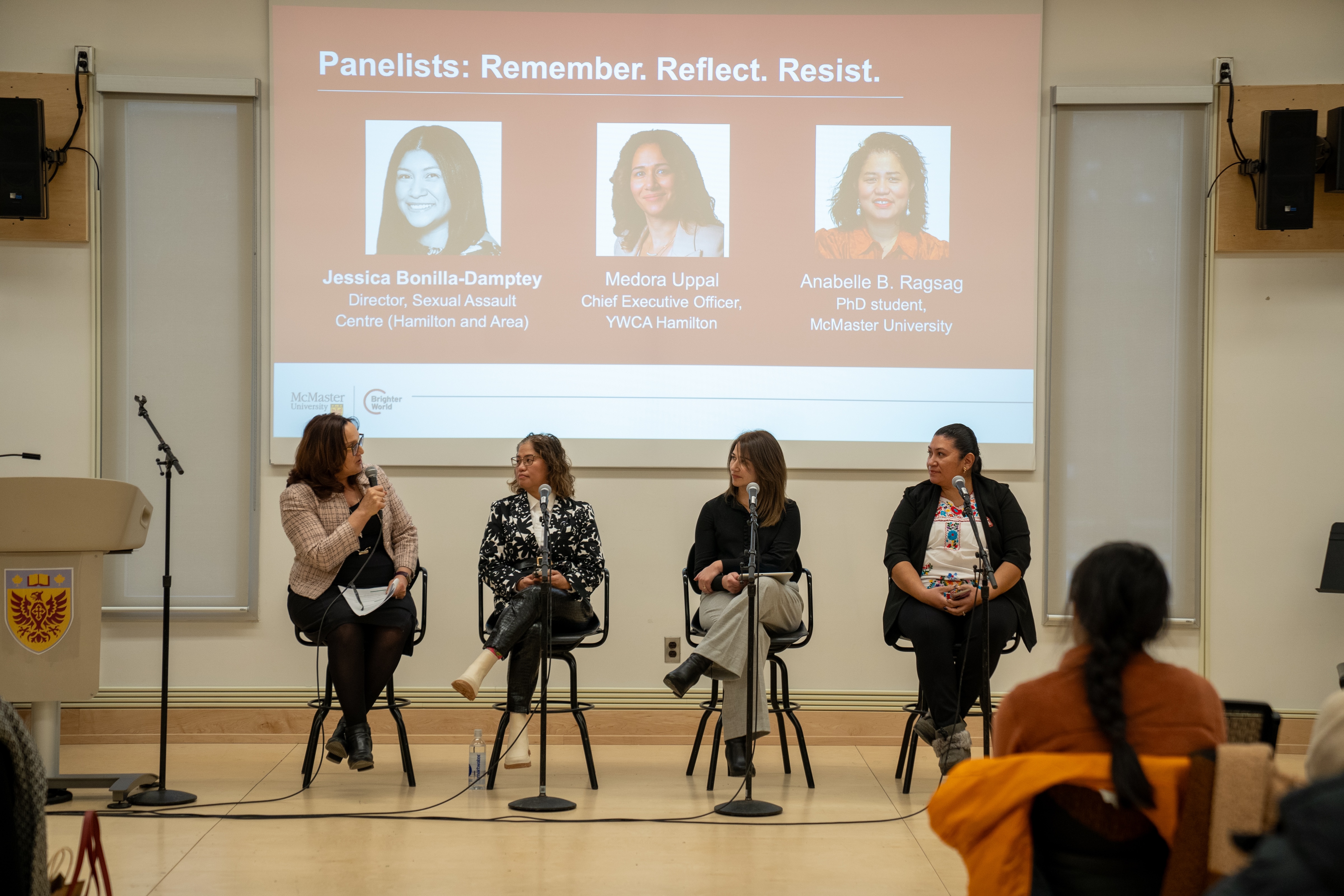
“Of the 231 Calls for Justice, only two have been implemented or met,” noted Jessica Bonilla-Dampteya, one of the participants in a panel discussion moderated by Lenore Lukasik-Foss from the Equity and Inclusion Office. “We’re constantly reflecting but what is the resisting? What does the action look like?”
“As a researcher, I always think about: What is my research for? Who does it serve? Whose voices do I magnify? Knowledge and evidence can allow us to build on what can be feasible, what we can do and what alternative visions of the world we can see.” — Social Work PhD student Anabelle B. Ragsag
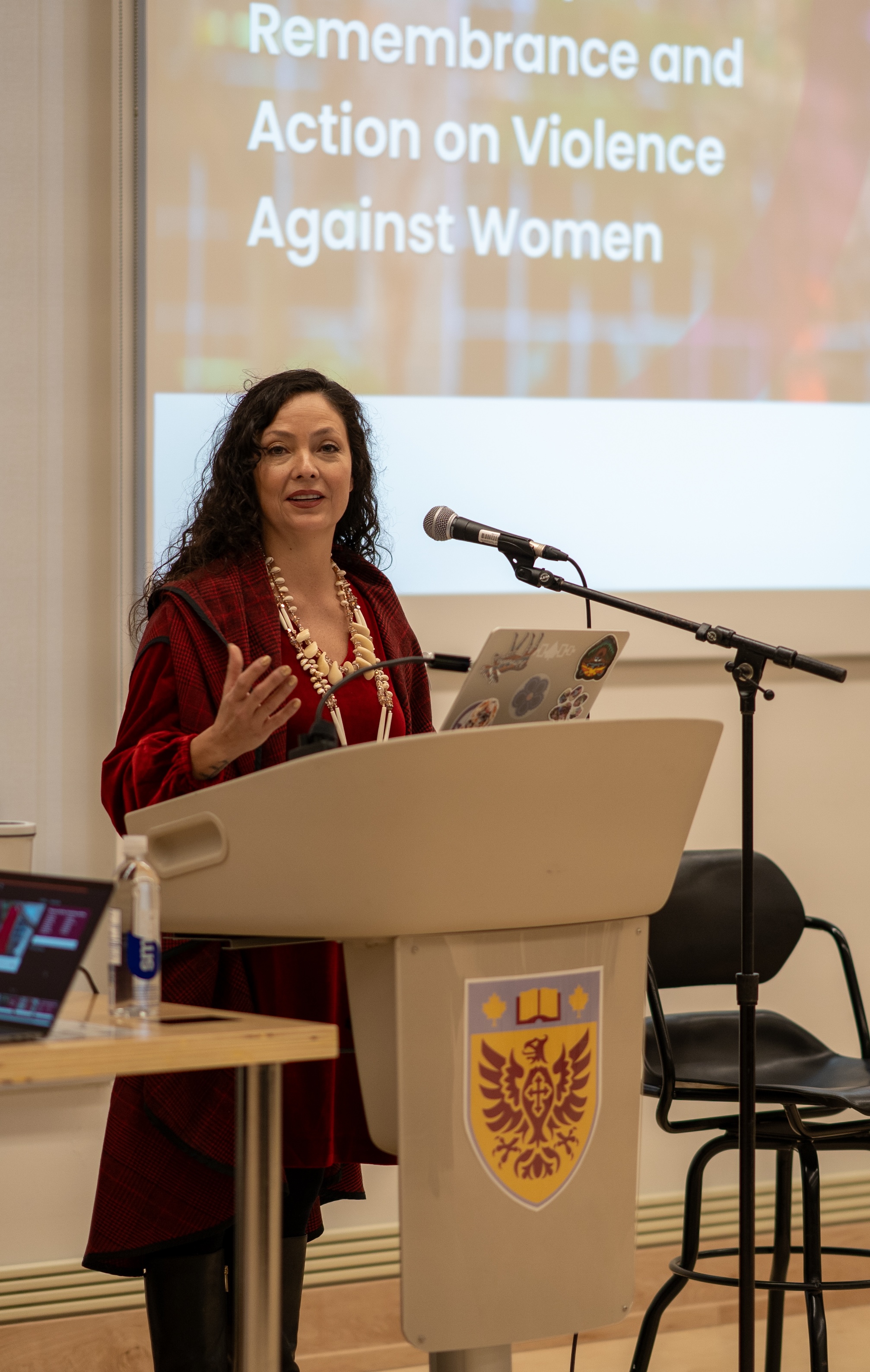
“The resistance for me is transformation; giving people a chance to think and act differently and recognizing the importance of individual transformation and actualization to become a human being.” — Chancellor Santee Smith – Tekaronhiáhkhwa
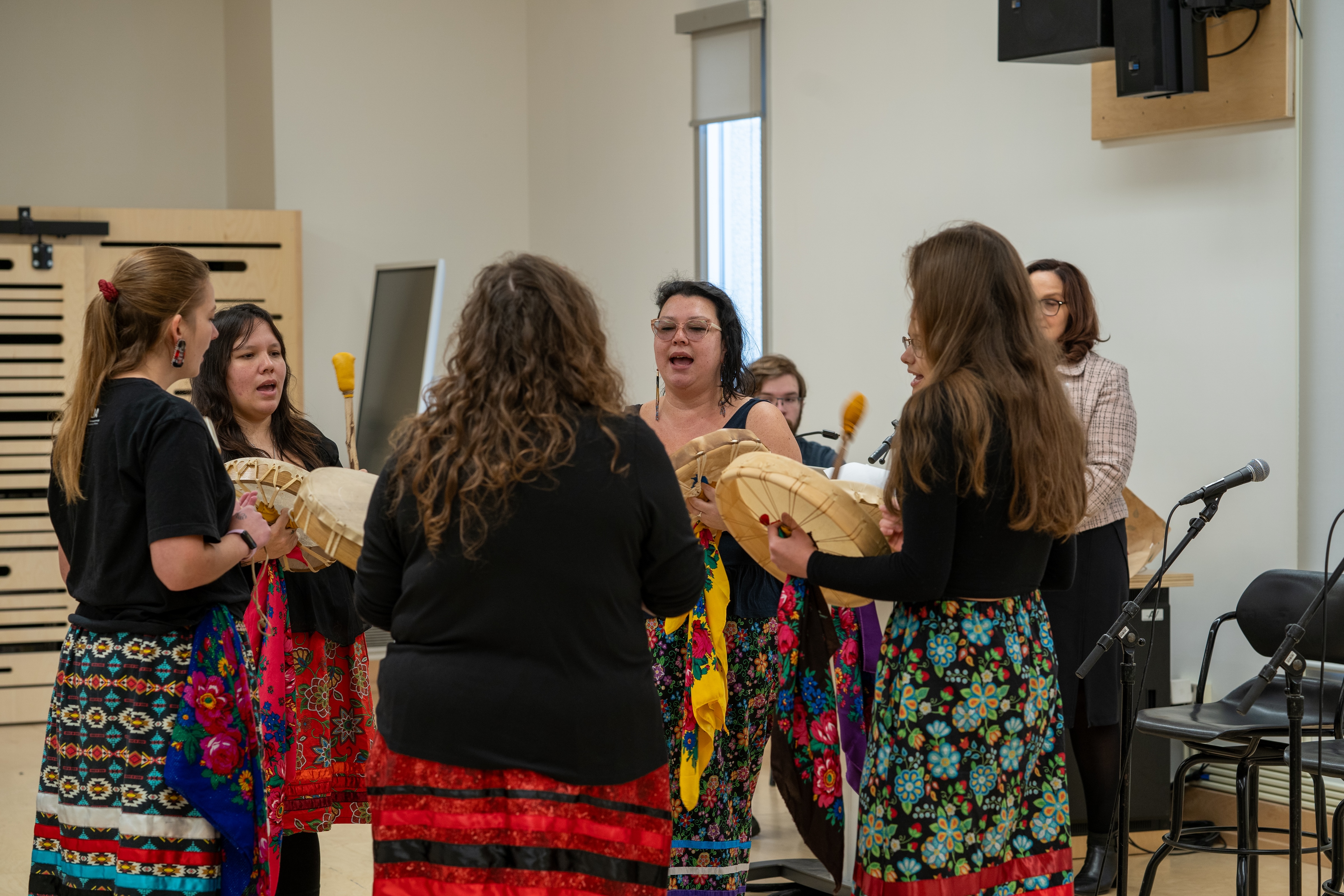
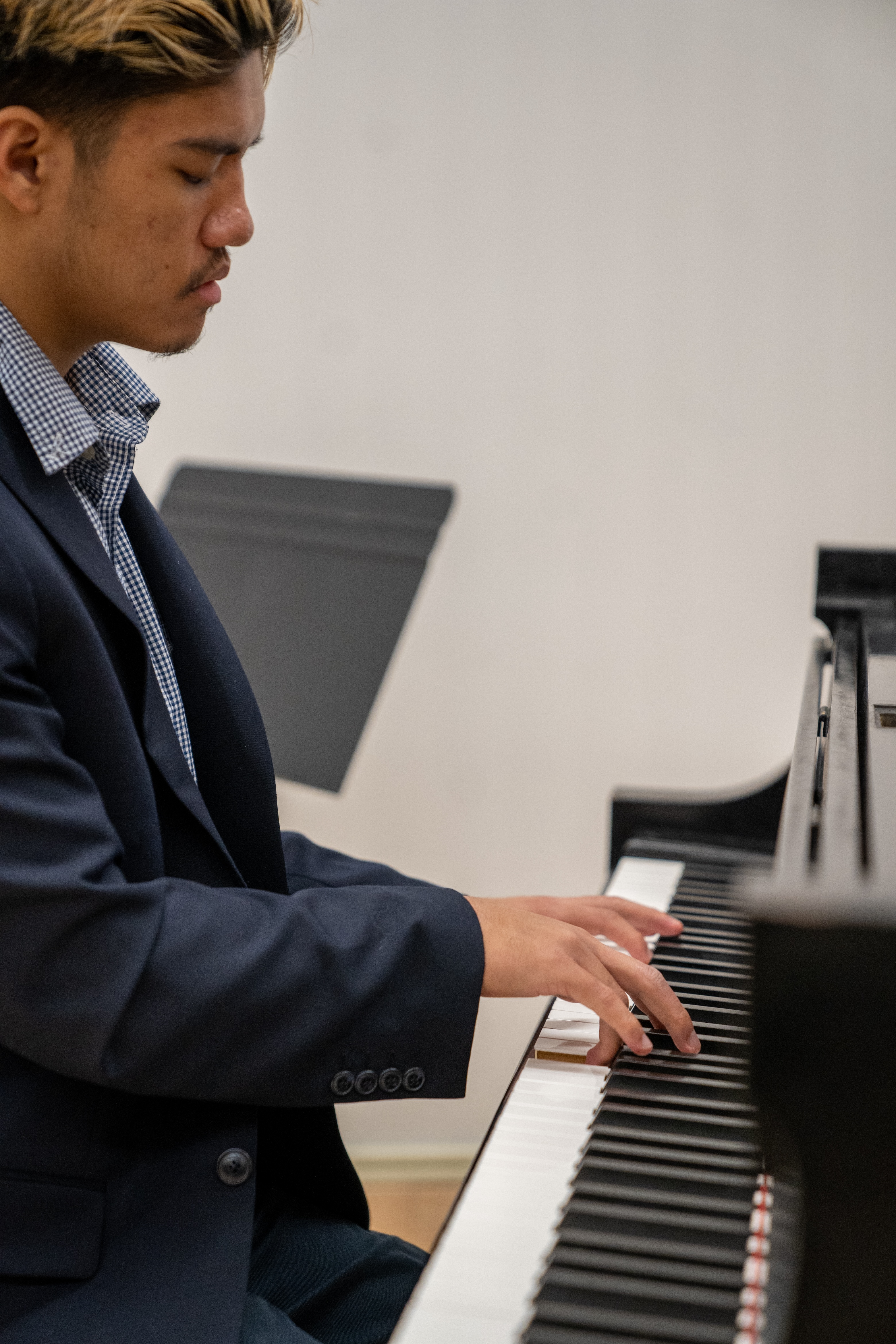
Student-led group Kindred Spirits Drum Circle performed, and software engineering student Aidan Lao played the piano.
Many attendees wore white ribbons to acknowledge those impacted by gender-based violence, or moose hide, to symbolize their commitment to ending violence against Indigenous women and children.
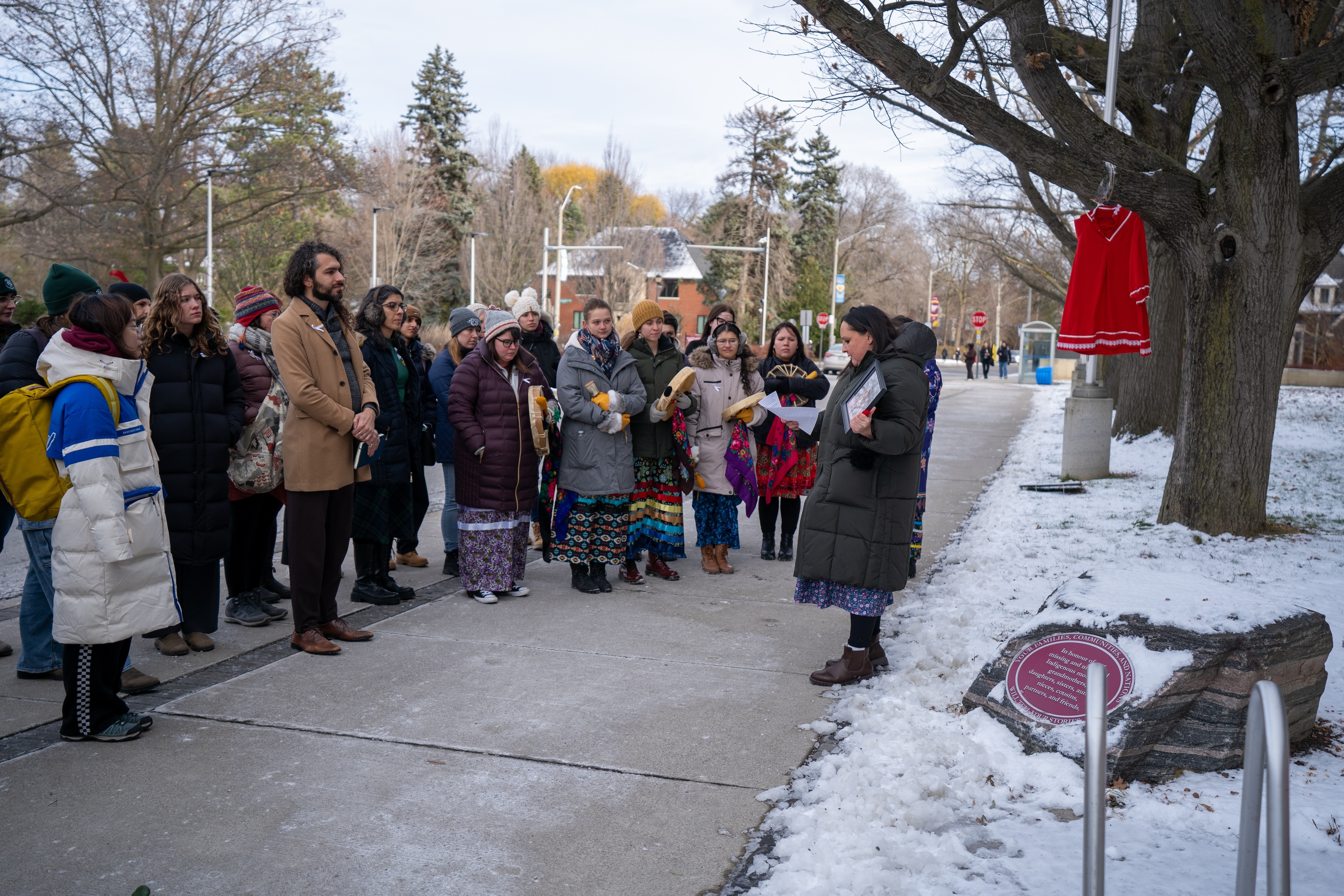
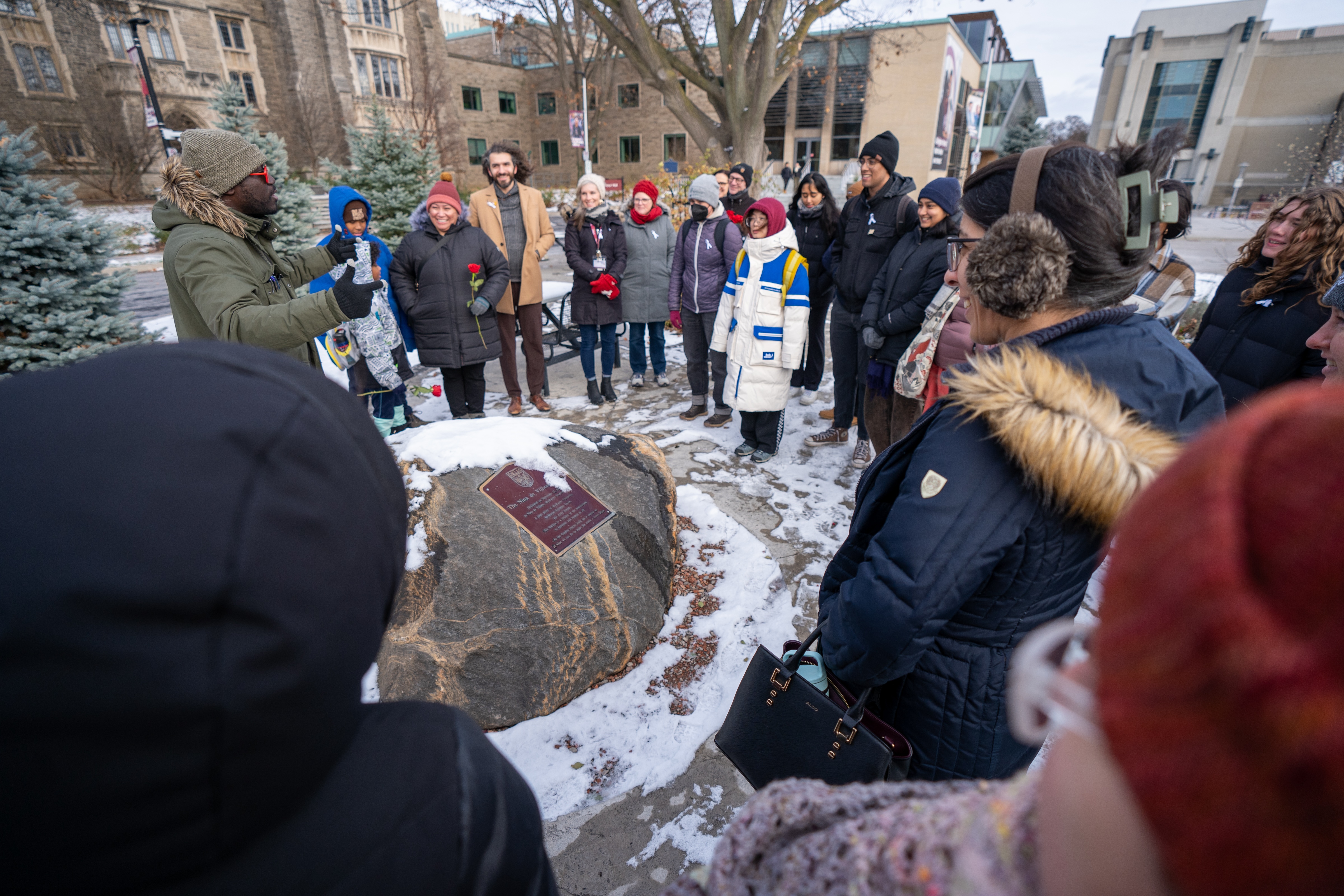
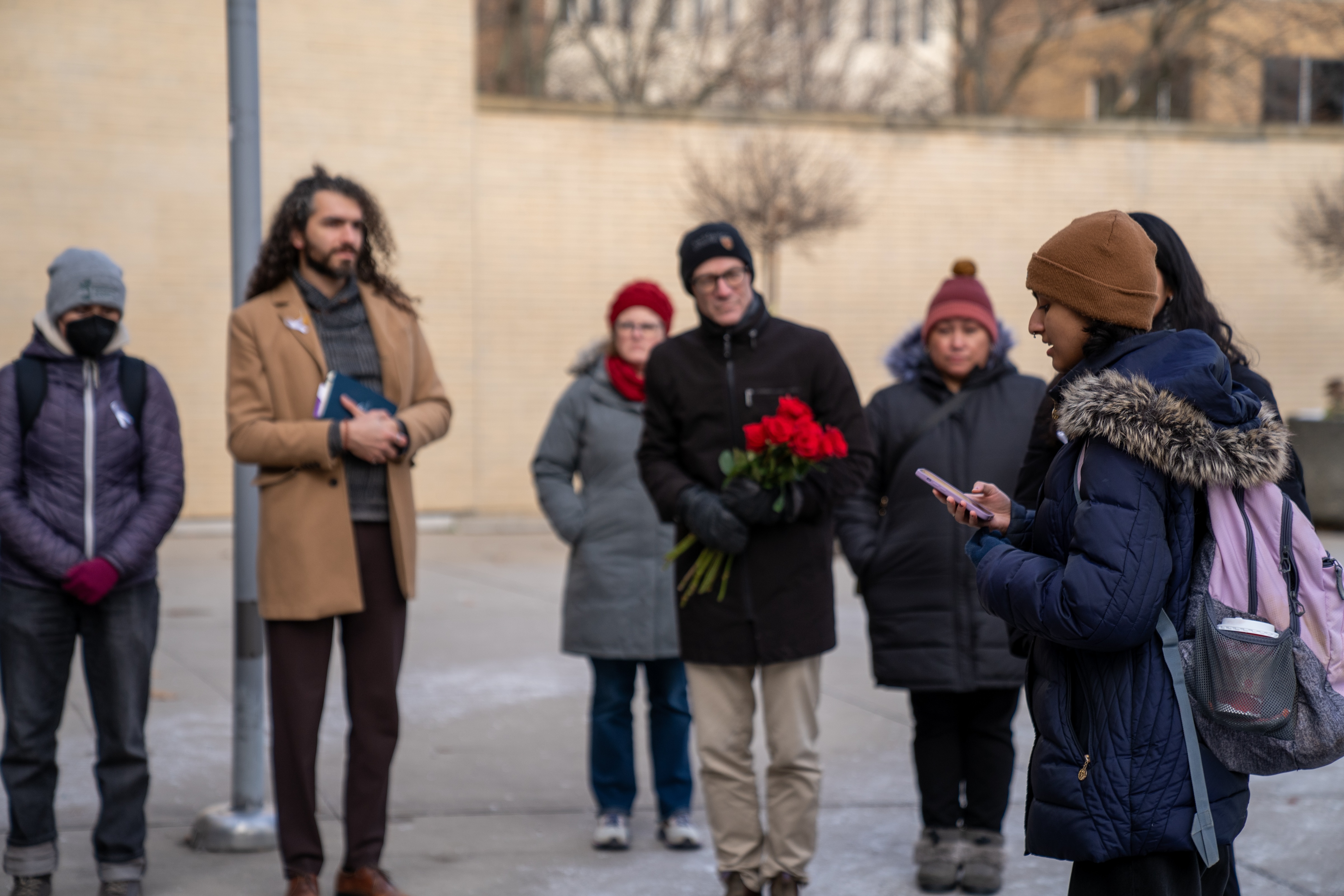
The Memorial Walk, held after the panel event, has become a fixture of McMaster’s Dec. 6 commemoration, guiding participants to various spots of significance on campus to lay red and white roses.
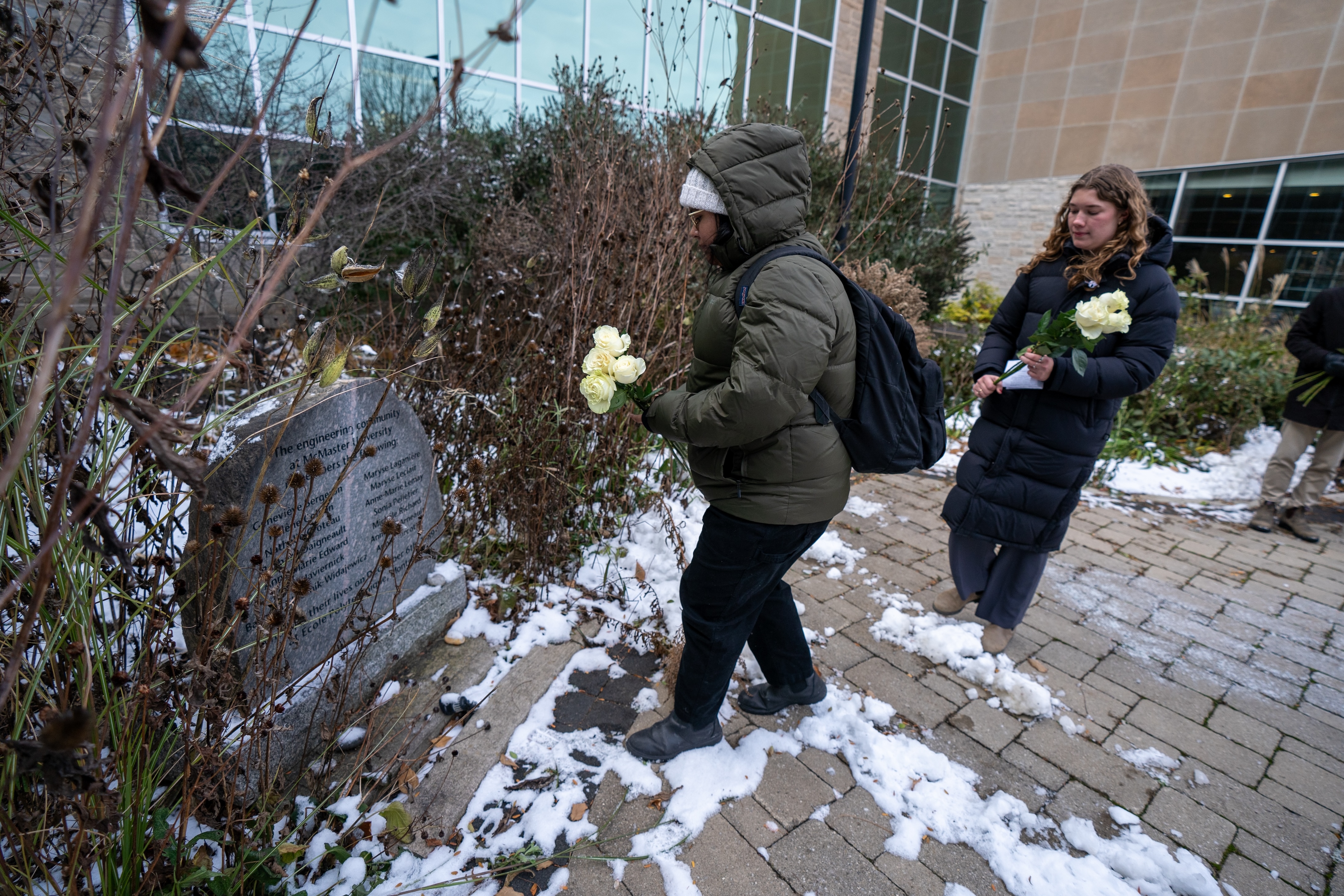
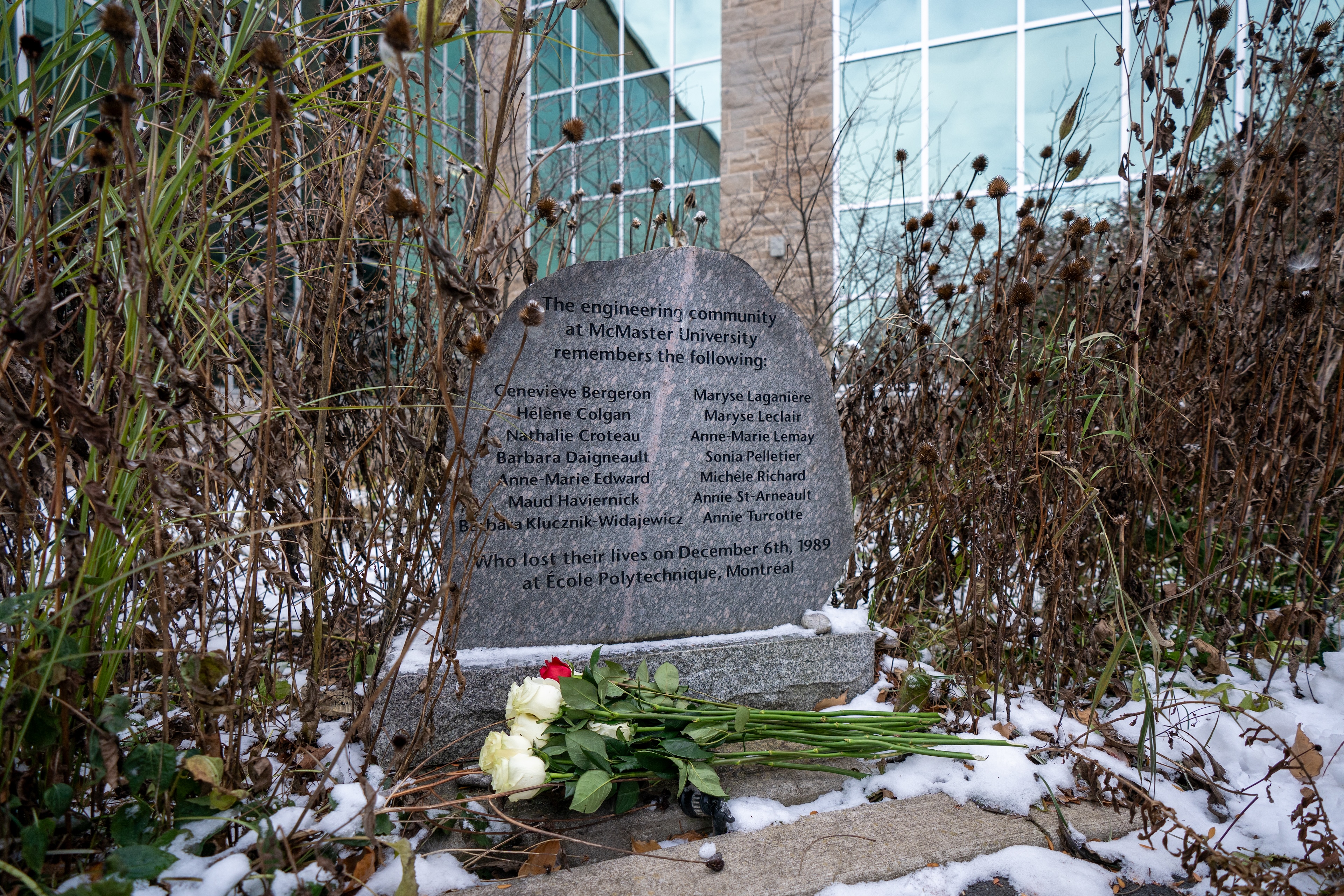
University flags were lowered to half-mast and red dresses hung on trees around campus as part of the REDress Project. This installation, created by Winnipeg-based artist Jaime Black in 2010, originally appeared in downtown Winnipeg. Since then, red dresses have been displayed in installations across the country to draw attention to the ongoing crisis of missing and murdered Indigenous women and girls.
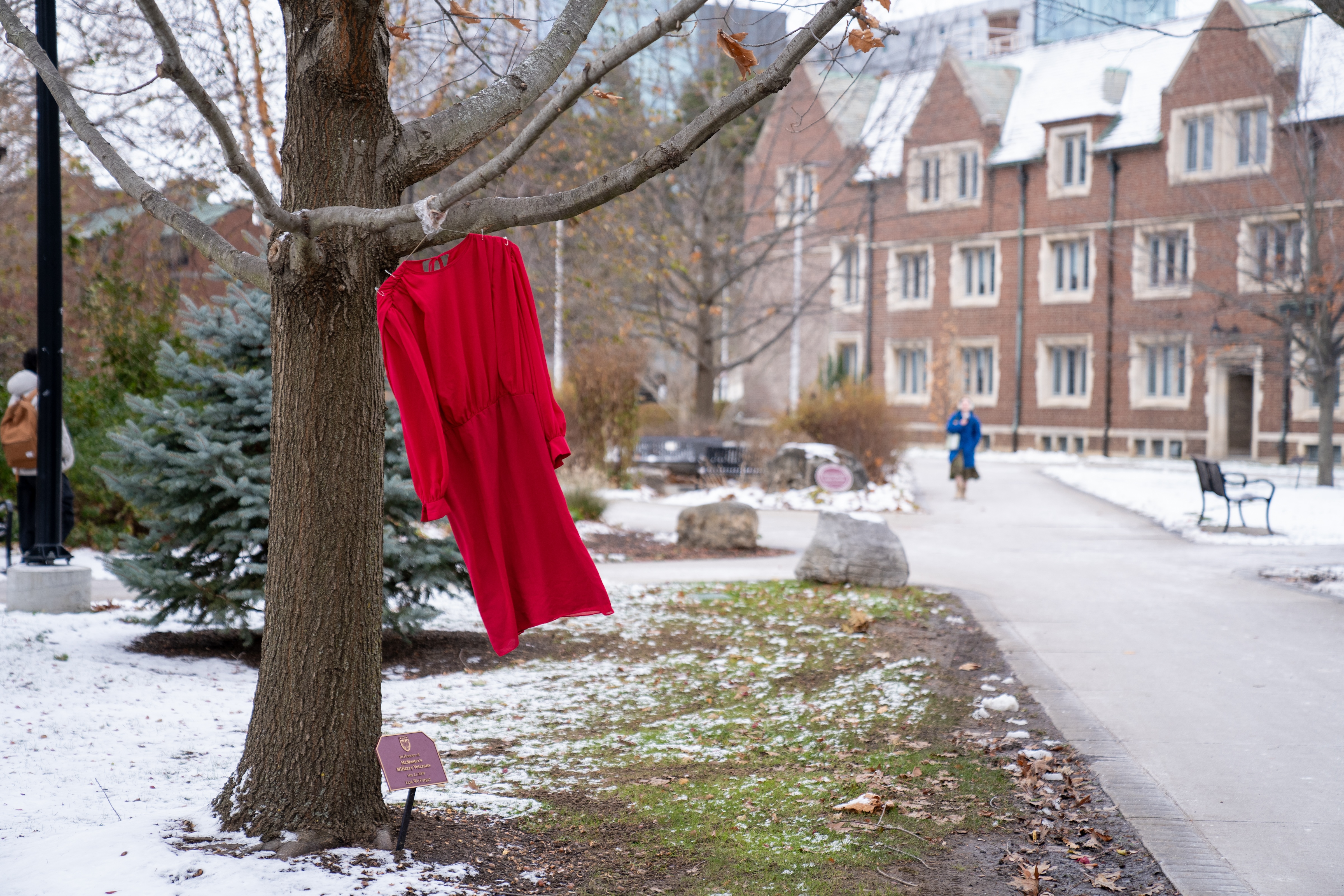
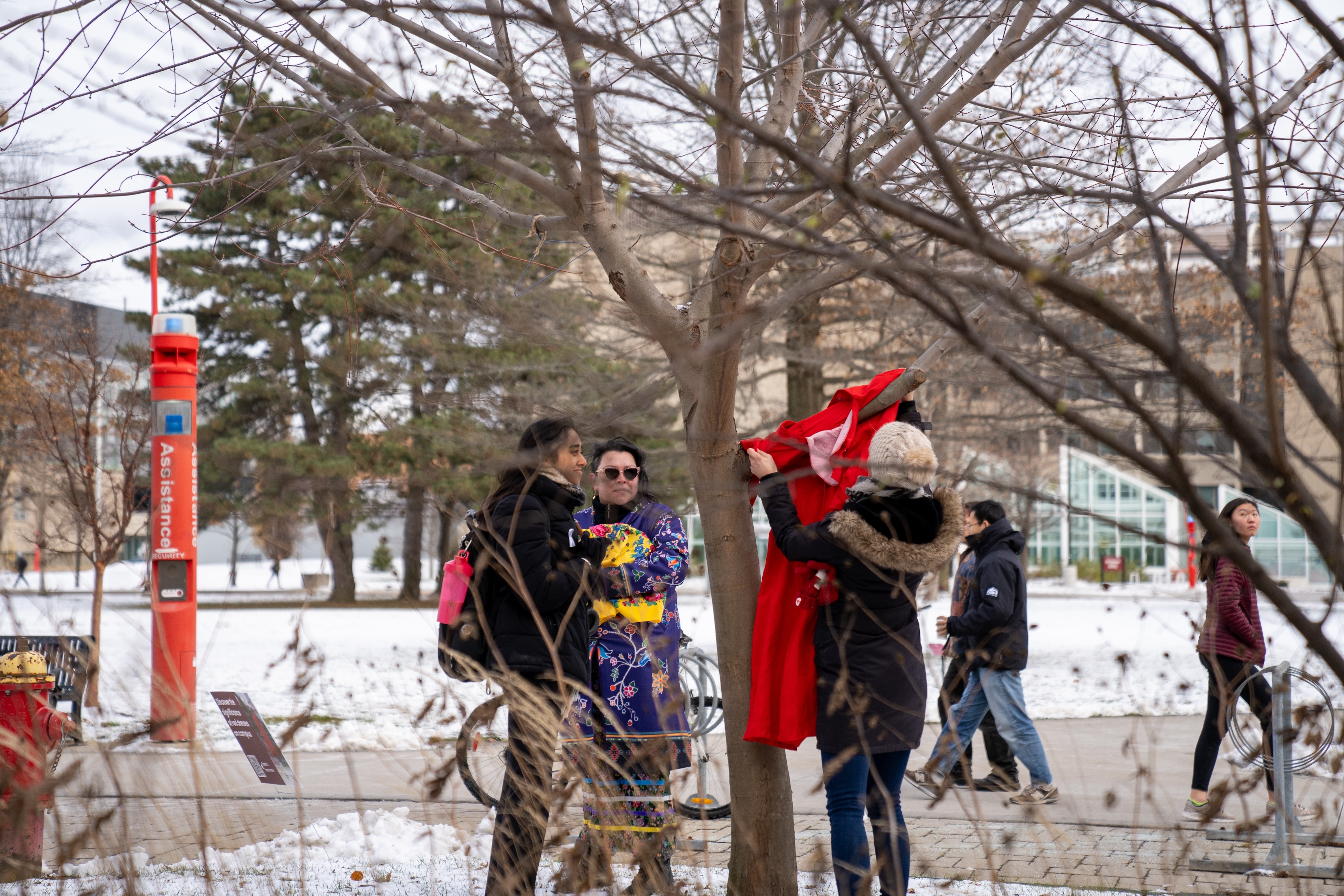
The Dec. 6 event and Memorial Walk wrapped up a week of programming. Pop-up booths with resources, donation bins for supplies to local women’s shelters, and opportunities to engage with works at the McMaster Museum of Art around the themes of the National Day of Remembrance and Action on Violence Against Women were part of it all.
Events were organized by a university-wide committee that includes students, staff and faculty.
If you or someone you know needs support, click here to access resources for the McMaster community.

